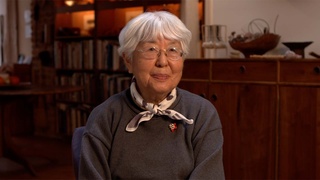Interviews
The political effects on Nikkei during the war (Spanish)
(Spanish) With regard to Chile, during the war, or immediately afterwards, it wasn’t very…how can I say this…pleasant for Nikkei. Even though the Chilean people never took any action against us, still there were of course political differences, due to the fact that Chile declared war against Japan, for example. But at that time, in the post-war period, at least insofar as I experienced it, I believe it was a time of Japan’s growth onto the world’s stage, don’t you think? From an economic standpoint, its culture generally became better known. And because of that, it was probably a more favorable time for us as Nikkei. In other words, it was good to be Nikkei. Like they say in Japan, right, “haku ga tsuku.” Meaning there were certain advantages, or maybe a certain respect, towards Nikkei, towards Japanese.
Date: October 7, 2005
Location: California, US
Interviewer: Ann Kaneko
Contributed by: Watase Media Arts Center, Japanese American National Museum
Explore More Videos

Parents identification as Peruvian Okinawan
Okinawan American whose parents are from Peru.

Okinawan cultural appreciation
Okinawan American whose parents are from Peru.

Prejudice against Okinawans from mainland folks
Okinawan American whose parents are from Peru.

American values she aligns with
Okinawan American whose parents are from Peru.

Working together in Okinawa using three languages
Okinawan American whose parents are from Peru.

The lack of discussion about family’s incarceration in Amache
Sansei judge for the Superior Court of Los Angeles County in California


Expressing herself through poetry
(b. 1923) Japanese American poet, activist

Being Confused about Racial Identity in Postwar United States
(b. 1932) Nisei American stage, film, and TV actress

Her brother’s reasons as a No-No Boy
(b. 1923) Japanese American poet, activist

Her grandfather was pressured to teach Japanese
Sansei judge on the Superior Court of Los Angeles County in California

Neighbor took care of her mother after grandfather was taken by FBI
Sansei judge on the Superior Court of Los Angeles County in California

Immediately after the bombing
(b. 1938) Japanese American. Hiroshima atomic bomb survivor

Other family members not as lucky
(b. 1938) Japanese American. Hiroshima atomic bomb survivor

His parents had little hope that he had survived the atomic bomb
(b. 1938) Japanese American. Hiroshima atomic bomb survivor
